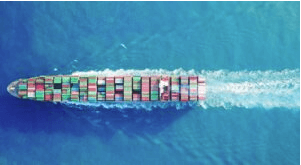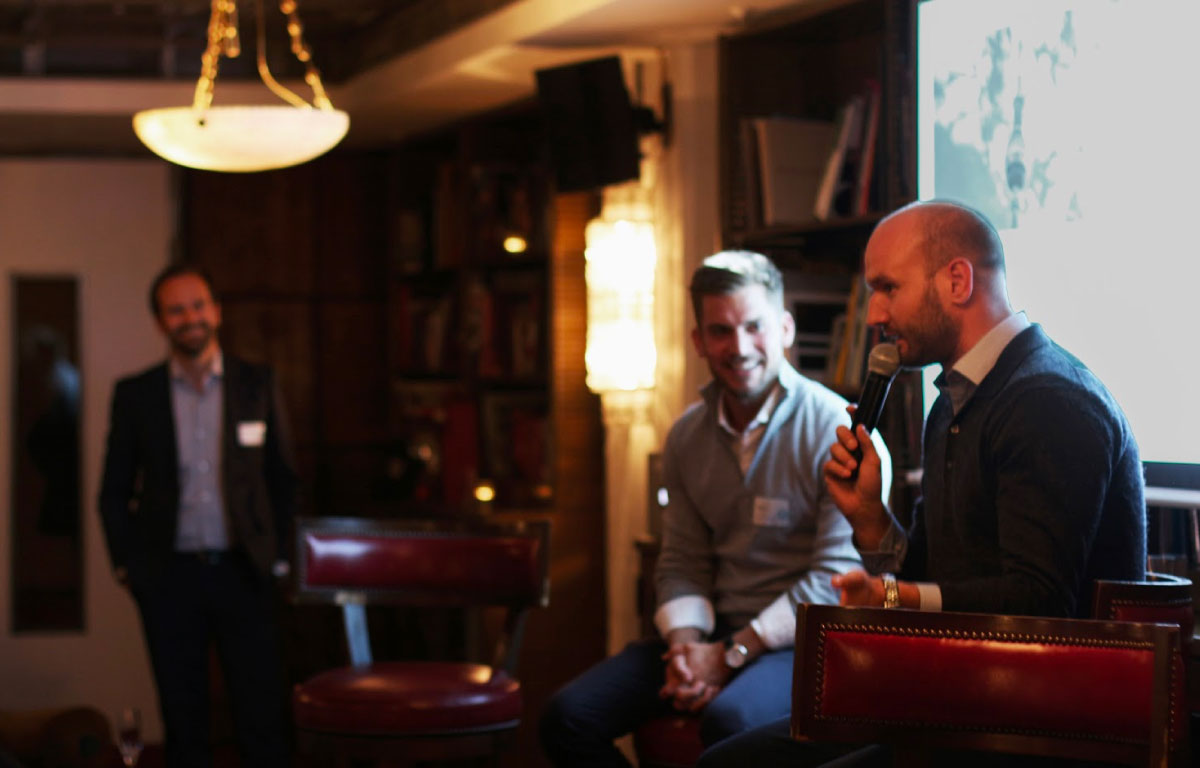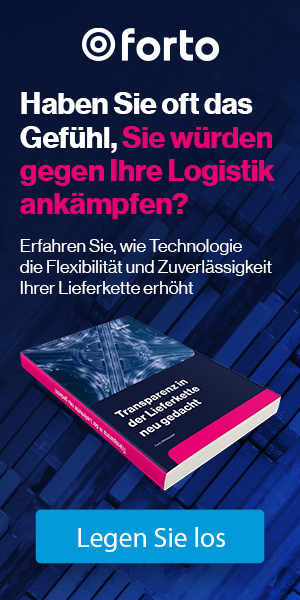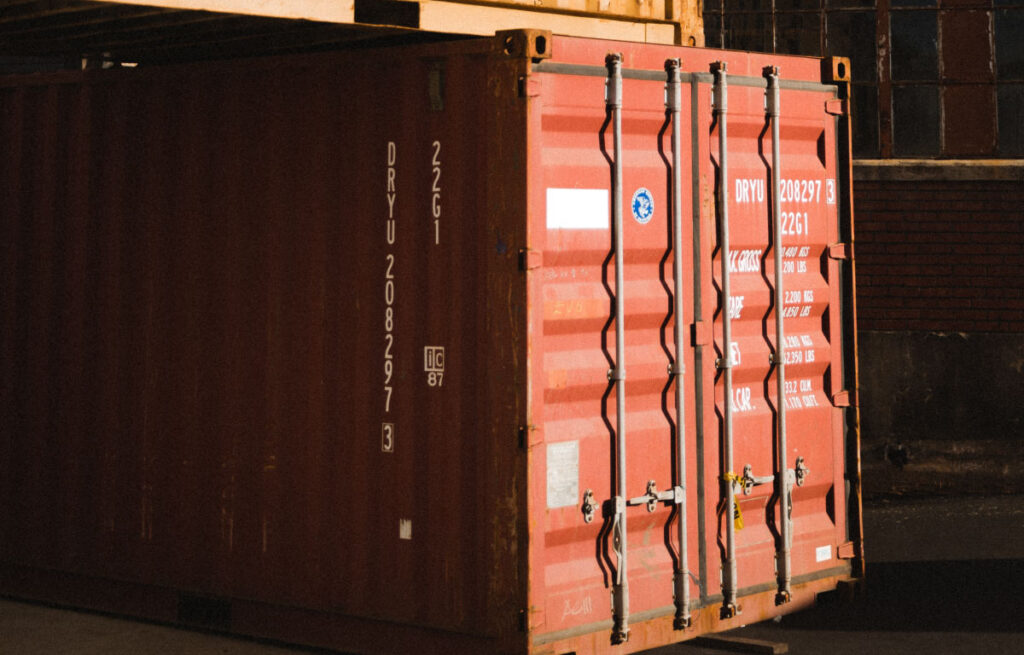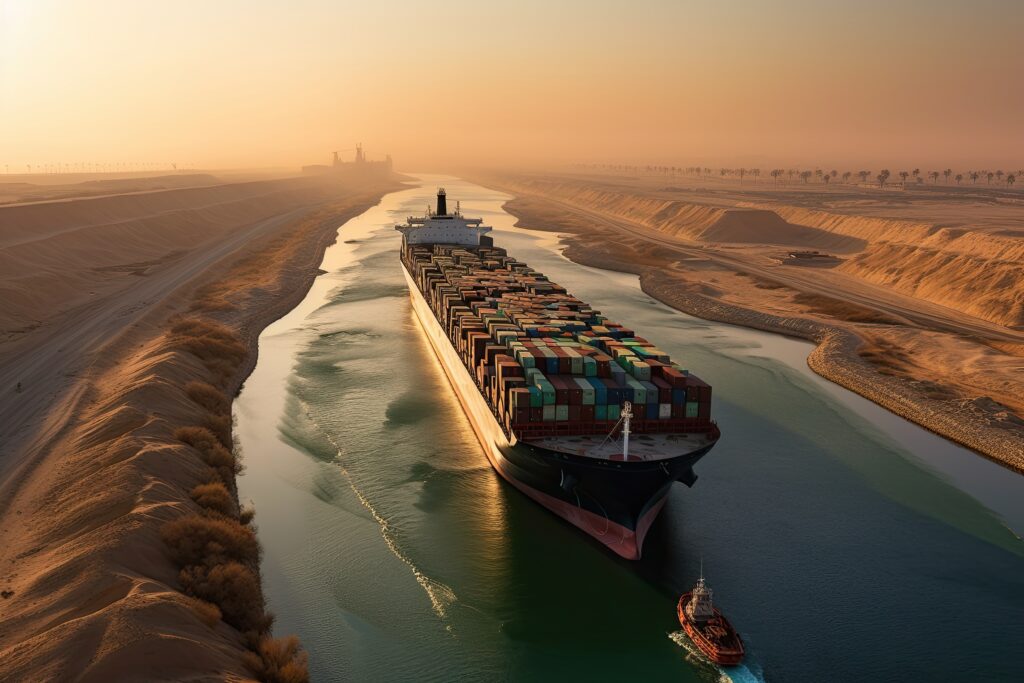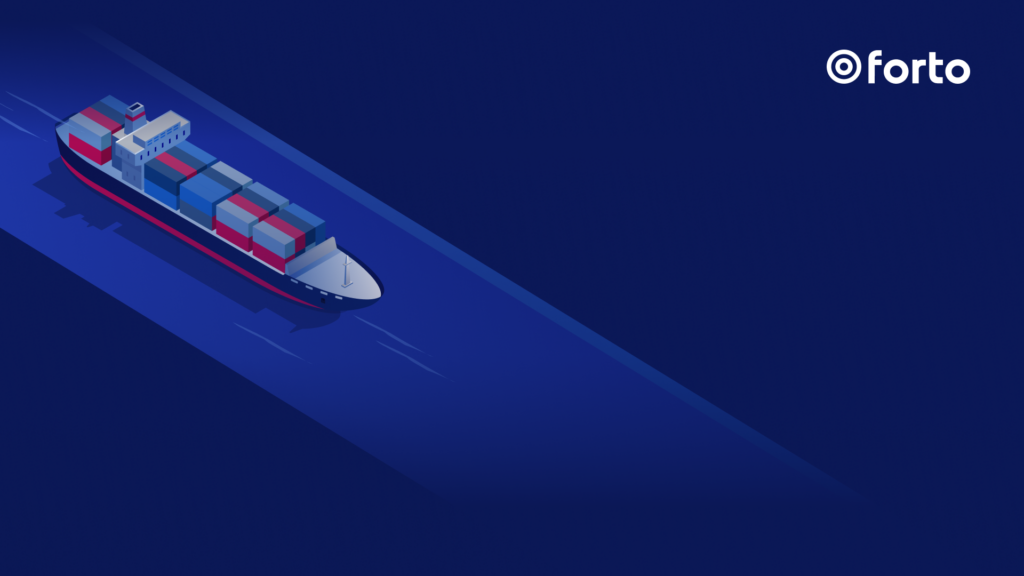Last Thursday, we hosted our first innovation and networking event “Berliner Luft & See”. About 40 experts from the logistics industry, startup economy and supply chain managers from German Mittelstand followed FreightHub’s invitation to the Soho House in Berlin and seized the opportunity to discuss current trends, challenges and lighthouse examples of digitization in Germany and Logistics.
We were lucky enough to host some of the most renown experts in terms of writing the future (Christian Miele, Partner eVentures and Thomas Sorbo, Co-Founder Xeneta, Dr. Kirstin Hüttner-Tong, Home24) as well as understanding the presence (Dr. Ludwig Hausmann, Partner McKinsey, Dr. Fabian Engels, Senior Partner at Roland Berger).
Starting with a macro perspective on Germany’s economic position in terms of technology trends, shared by Christian Miele, it became quite obvious that a continued dependence on the automotive industry, currently making a third of all Dax30 profits, as well as 13% of Germany’s GDP is not a sustainable way in the future, given the rise of car-sharing services like UBER or Grab that might own the majority of customer relationships 10 years down the road.
Still, automotive, industrial and chemistry companies continue to build the most important pillars for our economy today and we need to make sure that we can keep up modern developments in AI, AR, VR or quantum computing to preserve current levels in GDP. It’s hard to imagine that Germany would drop on the same level as Argentina in terms of GDP if these industries would default.

Lastly Christian shared his recommendation to the German Government in terms of supporting a digital Germany and the successful ending of the #neuland phase. Right now there seem to be quite some funds, previously focused on nuclear energy for example (“Kernenergie-Fond”, 20Bn €). Funds like these should be used to build investment vehicles, similar to the Government of Singaporean Investment Corporation (GIC) with well over 100Bn USD in AUM, which is used to invest in growth rounds of companies. Right now, less risky investments in more mature companies are almost only reserved to vehicles by the US government or funds like the 100Bn USD Vision Fund of Softbank. This leads to a disadvantage for German taxpayers, who start carrying the risk in these companies very early on, but can’t benefit from follow-on rounds once the risk declines.
Ludwig took up the thoughts from Christian with a deep dive on technology and digital trends in logistics. He presented a recent study by McKinsey and Google that confirmed the lack of digitization. For instance, the degree of digitization in logistics is only 50% of the top digital leaders. On the other hand, the universe of young logistics companies is constantly growing – he and his team analyzed 2100 investment in logistics startups and clustered them into 9 clusters with Sea Freight transportation as top category.

Interestingly, the mobile search volume in B2B logistics also grows significantly and has already reached more than 20% in Europe and even more than 30% in the US. Generally looking at the technology landscape, it became clear that “data is the gold” of the 21st century. According to Ludwig, the largest potential arises from the application of advanced analytics and machine learning that is used along the value chain to improve pricing, solutions to the customer and most importantly the collaboration and transparency among the many players involved in transportation. Lastly, he opened up the discussion on the involvement of Amazon and Google in the future of logistics. For instance, Amazon already ranks second among warehouse companies in the world, while Google has invested more than half a billion USD in 300+ startups.
In the panel discussion, the speakers discussed the impact and speed of digital adoption in the industry today. For example, Kirstin Hüttner-Tong from Home24 explained the direct benefits she could realize at Home24 through higher visibility on articles in transit and improve the delivery at their warehouse while their business grew constantly. All speakers agreed that visibility and transparency will sooner or later lead to significant lower transactions costs, but standards with respect to information exchange are lacking and often rather local initiatives dominate. Thomas Sorbo, co-founder of Xeneta, outlined how his company has built a database to compare contracted ocean freight rates and, hence, offers its clients the opportunity to decrease time-consuming tender activities. Fabian Engels shared that view, but also emphasized that the speed of adoption with traditional players varies quite significantly. Interestingly, Kirstin realized that more and more players promote their digital tools to customers like Home24 in an attempt to slowly position themselves with initial digital offerings. So, where does the market evolve with digitization? Asked for their hypotheses, on which trend they would bet on, we got four different answers from the panel – from strong digitization benefits in air freight to a faster change in road freight markets to a rise of the digital freight forwarder model.
Finally, speakers and participants took the chance to continue their discussion, exchange ideas and build new personal connections. We thank the speakers and participants and are already looking forward to future discussions.
Fur further information on FreightHub, visit our website: https://freighthub.com/en/
The full McKinsey study can be downloaded here

